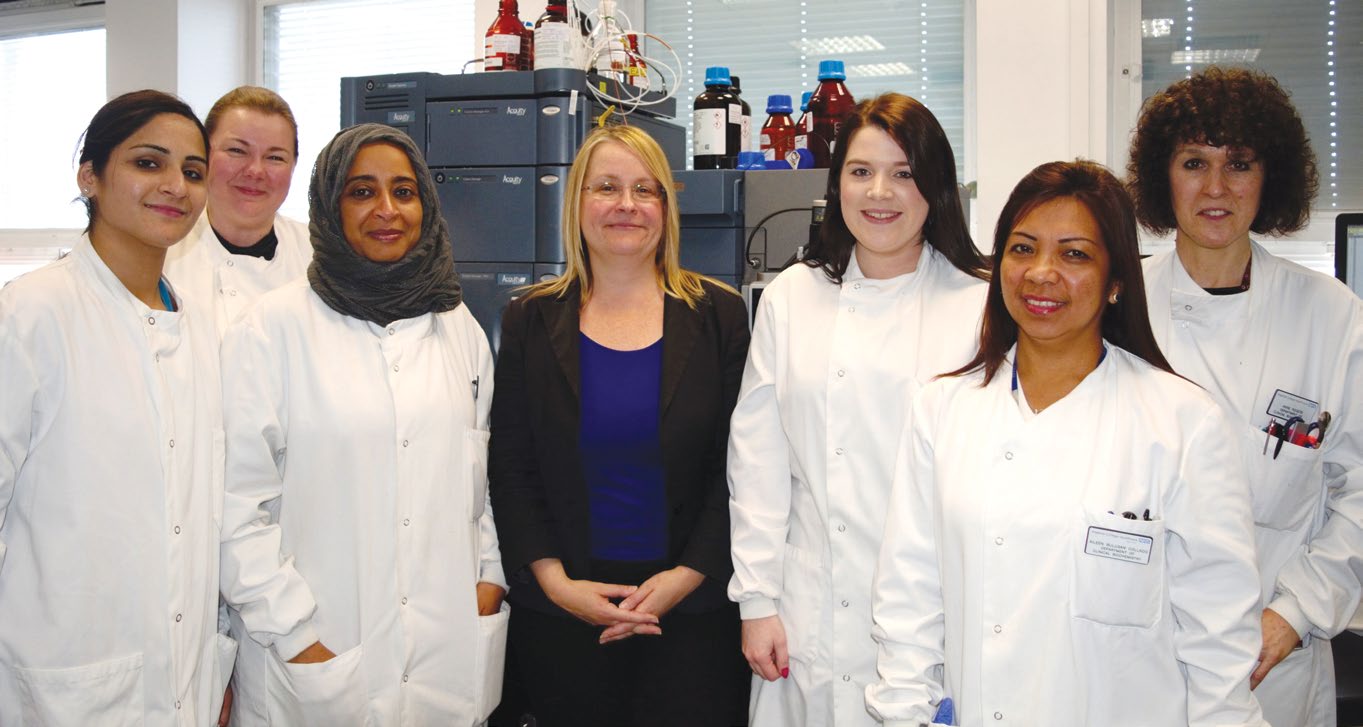Mass spectrometry is now routinely used for clinical diagnostics around the world, but manual sample preparation and traditional liquid-liquid extraction techniques are very time consuming, requiring new approaches to help streamline laboratory workflows. The endocrinology service at Charing Cross Hospital is using high throughput automated SPE to accelerate mass spec sample prep, improving turnaround times and freeing up staff time to develop new assays.

Imperial College Healthcare NHS Trust is made up of five hospitals across north west London, UK, and treats in excess of 1.5 million patients every year. The trust also plays host to North West London Pathology, a consortium of laboratories providing a wide range of pathology services across its catchment area and beyond. The endocrinology service, based in the Clinical Biochemistry Department at Charing Cross Hospital, is an example of the specialty services on offer, and provides advanced diagnostic testing for a range of hormonal diseases.
LC-MSMS technology is at the forefront of the endocrinology laboratory’s workflow, as Dr Emma Walker, Consultant Clinical Scientist and Trust Lead Healthcare Scientist, explained: “We first began using mass spectrometry in 2008, when we converted from radioimmunoassay to LC-MSMS for vitamin D testing. This was originally to increase throughput, as well as to move away from the use of radioactive reagents. We initially continued to prepare vitamin D samples manually, using a liquid-liquid extraction approach, but the exponential increase in vitamin D test requesting we were seeing at that time meant that it was not sustainable. This prompted our decision to switch to a 96-well microplate format and automated SPE (solid phase extraction) for mass spec sample prep, and we now use this approach for as many of our LC-MSMS assays as possible. In 2015, as part of a tender for a new mass spectrometry system, we acquired a Freedom EVO® workstation to help us further increase the effi ciency of our automated sample preparation.”
"Using this platform to help streamline the fl ow of samples through our service has liberated staff time, which we have been able to use to develop new assays and widen our test repertoire."
This platform – supplied as part of a partnership between Tecan and Waters to streamline mass spectrometry workflows for clinical laboratories – has all the hardware, labware and software scripts needed to perform SPE using 96-well Oasis® MAX μElution plates. Emma continued: “For most assays, patient samples and internal standards are pipetted into an initial 96-well collection plate on the workdeck of the Freedom EVO, then shaken for the mixing step. For scripts that include a protein crash step, we remove the plate and transfer it to a standalone centrifuge. If the 96-well assay plates require conditioning prior to samples being added, the platform performs these steps while the collection plate is being centrifuged. It then prompts the user to put the spun collection plate back onto the workdeck, and all the subsequent steps are carried out automatically, including sample addition, washing and elution into an LC-MSMS compatible solvent. This means that all we have to do is place a cover on the plate and transfer it from the Freedom EVO to the mass spectrometer and begin the analysis.”
“The Freedom EVO platform is intuitive for the operator to use; its graphical interface is compatible with a busy clinical laboratory. The first assay to go live using the Tecan system was our aldosterone testing, and we initially used a pre-programmed workflow. We often obtain basic ‘starter’ scripts from Waters for new assays, then adapt these to our specific requirements as we work through our own method validation in the laboratory. Several members of the laboratory team have been on training courses to help us fully exploit the potential of the system and we now also design and set up our own scripts. For example, we now offer a ‘core’ steroid panel, which includes testosterone, androstenedione and 17-hydroxyprogesterone. We run this steroid panel assay two or three times a week, with each full plate accommodating around 80 patient samples – plus standards and controls – and it takes approximately 90 minutes to prepare for analysis.”
“The walkaway automation offered by the Freedom EVO workstation has saved a lot of staff time in the laboratory compared to when we were doing manual liquid-liquid extraction. Using this platform to help streamline the flow of samples through our service has liberated staff time, which we have been able to use to develop new assays and widen our test repertoire. By implementing an automated, integrated approach, we have gone from a situation where we didn’t have enough pairs of hands in our laboratory, to one now where we are using Tecan solutions to help us maximize what we can get out of our mass spectrometry systems,” Emma concluded.
All Tecan products mentioned are for research use only. Not for use in clinical diagnostics.
To find out more on Tecan’s clinical laboratory solutions, visit www.tecan.com/diagnostics
For more information on North West London Pathology’s laboratory services, including diagnostic endocrinology, go to pathology.imperial.nhs.uk









